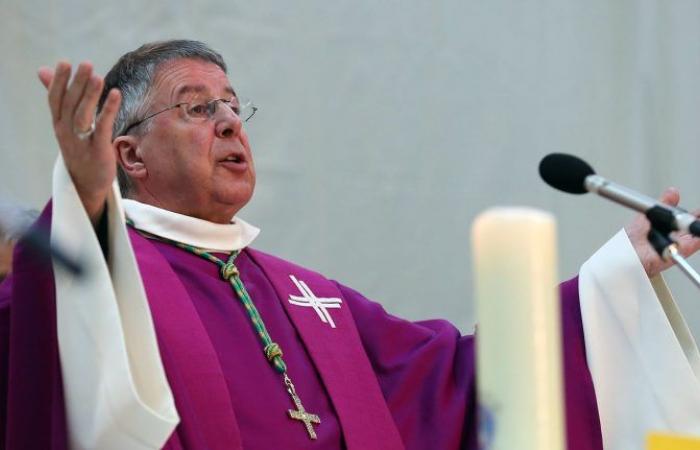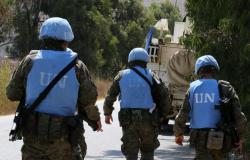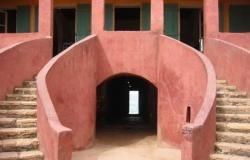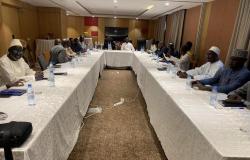The Valais Public Prosecutor’s Office announced at the beginning of October 2024 the dismissal of criminal proceedings against Mgr Jean Scarcella, Abbot of St-Maurice, following accusations of sexual harassment of a minor. Could this court decision play a role in the still pending canonical procedure targeting the canon?
“Father Jean Scarcella has been whitewashed”, was the headline The morning to October 8, 2024. The newspaper referred to the closing of the case against the head of the Territorial Abbey of St-Maurice by the Valais Public Prosecutor’s Office. Information revealed two days earlier by the German-speaking newspaper Sunday View. Although the title of the French-speaking newspaper may make one think that the affair is definitively over, and that Mgr Scarcella’s innocence has been demonstrated, things are a little more complicated than that.
Possible recourse
The Valais courts have in fact issued what is called an ‘order not to enter into the matter’. This is the decision by which the Public Prosecutor’s Office decides not to take action on a complaint or a denunciation, that is to say not to open an instruction or investigation. The order not to initiate proceedings may in particular intervene when the elements constituting the offense have not been carried out or the offense is time-barred (source: penalex.ch).
Joëlle de Rham-Rudloff, a lawyer in Geneva, specifies that orders not to enter into proceedings can be appealed within 10 days (depending on the cause), by the complaining party. If the appeal is accepted, the criminal procedure is reactivated. To the knowledge of cath.ch, however, no indication of this has emerged.
Prescription or lack of elements?
In the “Scarcella affair”, many elements remain unknown. In particular, the nature of the allegations against him has never been specified. While the Sunday View speaks of “harassment” carried out within the framework of piano lessons given by the canon, the latter spoke in secret words in the press of what he is accused of. “I was accused of having made an inappropriate gesture, qualified as harassment, a fact which dates back more than thirty years,” he explains in The morning. The person who made this denunciation says he was deeply hurt. I respect the feelings of this person and if I have hurt them, I ask them for forgiveness,” he continues.
The fact is that the considerations of the Public Prosecutor’s order have not been made public. This at the request of Mgr Scarcella, assuring the concern to “protect the complainant”. Until these elements are one day available, observers are reduced to conjectures. The main question being whether the order was made “because the elements constituting the offense have not been fulfilled” or because of limitation.
Questioned by cath.ch, Jean Scarcella does not provide any further information, indicating “in the current state of things”, not being able to respond as he is “waiting for official press releases”.
Broader scope of action for canonical justice
This distinction makes it possible to envisage different outcomes concerning the canonical preliminary investigation launched into this case since May 2023. The procedure followed an internal report from Father Nicolas Betticher, sent to the Holy See, against six Swiss prelates, including Mgr Scarcella. Concerning the latter, if indeed the Valais justice did not enter into the matter after having considered that the elements available could not lead to criminal proceedings, it is imaginable that the justice of the Church would not succeed in determining this either. .
Note that the Church’s criteria for judging may be different from those of state justice. And an act considered not reprehensible from a criminal point of view can still result in canonical sanctions.
In the second possibility, that is to say if the order not to enter into the matter by the Public Prosecutor’s Office was issued due to the limitation period, the prospects are different. Because the Vatican can lift the statute of limitations in cases of abuse of minors. Ecclesiastical justice thus has, in this type of case, a broader scope of action than common law justice.
Mgr Bonnemain’s report has in fact already been transmitted to the Vatican, in January 2024. Rome can, however, intervene at any time, even after the submission of the investigation report, specifies a specialist consulted by cath.ch.
Use all available resources
But, in general, can elements from state justice be used within the framework of a canonical procedure? During a preliminary investigation, a bishop is appointed to conduct the research. It is up to him to bring together the elements for the prosecution or the defense. “To do this, he uses everything that seems necessary to him to get the most accurate idea of what really happened,” notes the expert. There can be a juxtaposition of tools and resources.” For example, the bishop will be able to benefit from his good knowledge of the pastoral terrain. For its part, common law justice has means that the Church does not possess, notably coercion. “The use of court documents can certainly be useful.”
No privilege for the Church
But can a canonical investigator simply gain access to court documents? “The person concerned by an order not to enter into the matter may transmit the information concerning him, as long as this does not harm the complaining party and if the criminal authority has not prohibited him from doing so,” underlines Joëlle de Rham-Rudloff. On the other hand, the canonical investigator cannot normally obtain such information from the judicial authority. Church authorities do not benefit from any privileges in the Swiss legal system. The Catholic Church will normally be considered on the same level as a private association or organization.
Concerning the case of Abbot Scarcella, “if the order of non-entry into the matter was issued because the elements constituting the offense have not been fulfilled, it will certainly be advantageous for him to transmit this to Rome”, comments Joëlle de Rham-Rudloff.
Several outcomes are therefore still possible in the St-Maurice affair. According to observers, if things are not “whitened”, they should at least be clarified in the coming months. (cath.ch/ag/arch/rz)
© Catholic Media Center Cath-Info, 10/13/2024
The rights to all the contents of this site are registered with Cath-Info. Any distribution of text, sound or image on any medium whatsoever is subject to payment. Saving to other databases is prohibited.






